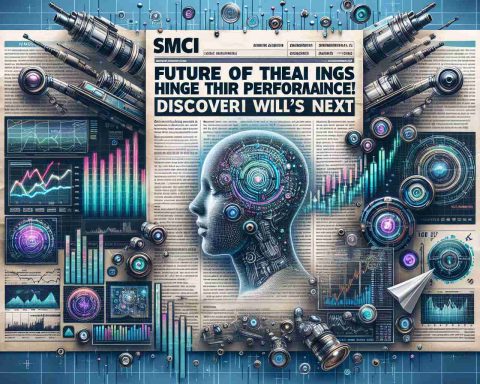In a significant development for the trading platform Robinhood, a panel of judges from the Ninth Circuit showed a willingness to reassess a securities class action against the company. This lawsuit centers on claims that Robinhood failed to disclose how the surge in “meme stock” trading and the cryptocurrency boom affected its financial outlook prior to its massive $2.1 billion initial public offering.
In a courtroom session on Wednesday, the judges deliberated on whether the lower court had incorrectly applied legal standards when it dismissed the case. The implications of this case could be substantial, as the judges seemed receptive to the arguments that the company might have withheld critical information from investors.
The lawsuit contends that Robinhood’s omissions about the market dynamics and their potential effects on the company’s earnings misled investors during a crucial period. Investors deserve transparency, particularly when making decisions in the volatile environments created by meme stocks and cryptocurrencies.
As the judges weigh the merits of reviving the lawsuit, the decision could not only alter Robinhood’s legal trajectory but also set a precedent in how securities disclosures are handled in the fast-paced trading landscape. Investors and analysts alike are keenly watching for the outcome of this legal challenge, which could influence future incidents in the financial sector.
Legal Scrutiny of Robinhood: Implications for Investors and the Financial Landscape
In a pivotal moment for the financial trading platform Robinhood, a panel from the Ninth Circuit is considering the potential revival of a securities class action lawsuit against the company. This case raises critical questions about transparency and the ethical responsibilities of financial firms, particularly in light of the rapidly evolving landscapes of “meme stocks” and cryptocurrencies. As Robinhood faces scrutiny over its disclosure practices leading up to its monumental $2.1 billion IPO, the outcome of this legal battle could ripple through the investor community and the broader economy.
The heart of the lawsuit revolves around claims that Robinhood inadequately disclosed how the surge in meme stock trading and the meteoric rise of cryptocurrencies would impact its financial performance. The judges’ openness to reassessing the lower court’s decision reflects a growing recognition of the need for companies to be forthright about the volatile market conditions in which they operate. Investors, particularly those drawn to the exciting yet precarious realms of meme stocks and cryptocurrencies, rely on accurate and timely information to navigate their investment decisions.
The implications of this case extend beyond legal boundaries. A favorable ruling for the plaintiffs could illuminate the dark corners of market manipulation and investor deception, urging regulatory bodies to tighten regulations around disclosures in the financial sector. This change could foster a more responsible trading environment, where companies are held accountable for their communications, ultimately leading to greater investor confidence.
Furthermore, the outcome of the lawsuit could act as a bellwether for the future of trading platforms amid the rise of decentralized finance (DeFi) and increased retail investor participation. As more individuals enter the market, the potential for misinformation grows, highlighting the importance of transparency and trust. Enhancing regulatory frameworks around disclosures could ensure that burgeoning technologies do not allow a repeat of past oversights, thus safeguarding investors and the integrity of financial markets.
From an environmental perspective, the rise of cryptocurrencies—often criticized for their energy-intensive mining processes—poses significant challenges. As Robinhood navigates its legal issues, the broader discussion surrounding cryptocurrency’s environmental impact is increasingly relevant. A shift towards stricter disclosure standards could potentially foster discussions about sustainable investment practices and environmental accountability in the financial sector.
Ultimately, the future of humanity could be shaped by how we choose to govern our financial systems. As society grapples with issues of transparency, responsibility, and environmental sustainability, the resolution of Robinhood’s legal challenges may redefine industry standards and investor expectations. This case not only underscores the necessity of ethical practices in finance but also emphasizes the interconnectedness of our financial, social, and environmental decisions in building a sustainable future. The outcome could serve as a crucial lesson in maintaining integrity within rapidly changing markets, ensuring that both investors and the planet are treated with the respect they deserve.
Will Robinhood Face Major Legal Repercussions? Insights on the Class Action Lawsuit
Robinhood’s Class Action Lawsuit: An Overview
In a pivotal moment for the trading platform Robinhood, the Ninth Circuit Court is reevaluating a securities class action lawsuit that could have far-reaching consequences for the financial services industry. This case revolves around allegations that Robinhood failed to adequately disclose the impact of the “meme stock” phenomenon and the cryptocurrency surge on its financial health prior to its monumental $2.1 billion initial public offering (IPO).
Legal Implications and Court Proceedings
In recent court discussions, judges displayed a keen interest in whether the previous dismissal of the case by a lower court was misguided. Legal experts suggest that if the judges decide to reinstate the lawsuit, it could pave the way for stricter disclosure requirements for companies, especially those operating in volatile markets. This reconsideration underscores the critical nature of transparency in financial disclosures to safeguard investor interests.
Importance of Investor Transparency
The lawsuit emphasizes that investors rightfully expect comprehensive insights into how market dynamics, particularly those influenced by social media and cryptocurrency trends, affect a company’s performance. The allegations claim that Robinhood’s failure to disclose such information misled investors during a time of rampant trading activity involving meme stocks, which could lead to significant financial losses for those who invested based on incomplete information.
Potential Precedents for the Financial Sector
Should the Ninth Circuit decide to allow the lawsuit to proceed, it may set a new legal precedent regarding how companies must communicate with investors. This case could reshape the landscape of securities disclosure, influencing not only Robinhood but various other trading platforms and financial firms, demanding greater diligence in their investor communications.
Insights on Market Reactions and Analyst Predictions
Market analysts are closely monitoring this case, as its outcome may influence investor confidence and trading behaviors across platforms that experience similar volatility tied to retail investor activity. If Robinhood is found liable, we could see a wave of lawsuits from investors across various trading platforms who feel misled due to insufficient disclosures.
Conclusion
The ongoing deliberations regarding Robinhood’s class action lawsuit showcase the intersection of trading technology, market volatility, and investor rights. As this legal battle unfolds, it holds significant implications for the future of securities disclosures and investor protections in the financial markets.
For more insights on the evolving landscape of trading platforms and implications for investors, visit Robinhood.



















